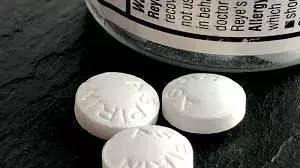- Home
- Medical news & Guidelines
- Anesthesiology
- Cardiology and CTVS
- Critical Care
- Dentistry
- Dermatology
- Diabetes and Endocrinology
- ENT
- Gastroenterology
- Medicine
- Nephrology
- Neurology
- Obstretics-Gynaecology
- Oncology
- Ophthalmology
- Orthopaedics
- Pediatrics-Neonatology
- Psychiatry
- Pulmonology
- Radiology
- Surgery
- Urology
- Laboratory Medicine
- Diet
- Nursing
- Paramedical
- Physiotherapy
- Health news
- Fact Check
- Bone Health Fact Check
- Brain Health Fact Check
- Cancer Related Fact Check
- Child Care Fact Check
- Dental and oral health fact check
- Diabetes and metabolic health fact check
- Diet and Nutrition Fact Check
- Eye and ENT Care Fact Check
- Fitness fact check
- Gut health fact check
- Heart health fact check
- Kidney health fact check
- Medical education fact check
- Men's health fact check
- Respiratory fact check
- Skin and hair care fact check
- Vaccine and Immunization fact check
- Women's health fact check
- AYUSH
- State News
- Andaman and Nicobar Islands
- Andhra Pradesh
- Arunachal Pradesh
- Assam
- Bihar
- Chandigarh
- Chattisgarh
- Dadra and Nagar Haveli
- Daman and Diu
- Delhi
- Goa
- Gujarat
- Haryana
- Himachal Pradesh
- Jammu & Kashmir
- Jharkhand
- Karnataka
- Kerala
- Ladakh
- Lakshadweep
- Madhya Pradesh
- Maharashtra
- Manipur
- Meghalaya
- Mizoram
- Nagaland
- Odisha
- Puducherry
- Punjab
- Rajasthan
- Sikkim
- Tamil Nadu
- Telangana
- Tripura
- Uttar Pradesh
- Uttrakhand
- West Bengal
- Medical Education
- Industry
Aspirin Use significantly linked to AKI Risk in Critical Chest Trauma Patients: Study

Researchers have found a significant association between aspirin use and an increased risk of acute kidney injury (AKI) in critically ill patients with chest trauma in a new study.
Non-steroidal anti-inflammatory drugs (NSAIDs) are increasingly utilized in trauma patients, particularly those with critical chest trauma who are susceptible to significant blood loss, leading to renal hypoperfusion.
Acute kidney injury (AKI) is known to carry a poor prognosis in chest trauma patients. Therefore, investigating the potential association between NSAID use and acute kidney injury risk in critical patients with chest trauma is crucial. They selected patients admitted to the intensive care unit (ICU) with chest trauma from the Medical Information Mart for Intensive Care III (MIMIC-III) dataset (2001–2012) and the Medical Information Mart for Intensive Care IV (MIMIC-IV) dataset (2013–2019). Propensity score matching (PSM) was used to match patients receiving NSAIDs with those not receiving treatment. Logistic regression was employed to assess the association between different types of NSAIDs and acute kidney injury in these patients.
Results: In MIMIC-IV, NSAID use significantly increased the risk of acute kidney injury in critical patients with chest trauma (OR 1.99; 95% CI 1.04 to 3.85). Subgroup analysis revealed that aspirin significantly increased AKI risk in both MIMIC-III (OR 1.81; 95% CI 1.02 to 3.2) and MIMIC-IV (OR 2.47; 95% CI 1.26 to 4.85).
However, ibuprofen and ketorolac use were not associated with acute kidney injury in these patients. They observed a significant association between aspirin use and an elevated risk of acute kidney injury in critical patients with chest trauma. These findings suggest that pain management strategies involving ibuprofen and ketorolac may be more appropriate for this patient population.
Reference:
Huang, Y., Xu, H., Xiang, F. et al. Aspirin increases the risk of acute kidney injury in critical patients with chest trauma: a retrospective cohort study. Int J Emerg Med 18, 38 (2025). https://doi.org/10.1186/s12245-025-00835-1
Dr Kartikeya Kohli is an Internal Medicine Consultant at Sitaram Bhartia Hospital in Delhi with super speciality training in Nephrology. He has worked with various eminent hospitals like Indraprastha Apollo Hospital, Sir Gangaram Hospital. He holds an MBBS from Kasturba Medical College Manipal, DNB Internal Medicine, Post Graduate Diploma in Clinical Research and Business Development, Fellow DNB Nephrology, MRCP and ECFMG Certification. He has been closely associated with India Medical Association South Delhi Branch and Delhi Medical Association and has been organising continuing medical education programs on their behalf from time to time. Further he has been contributing medical articles for their newsletters as well. He is also associated with electronic media and TV for conduction and presentation of health programs. He has been associated with Medical Dialogues for last 3 years and contributing articles on regular basis.


